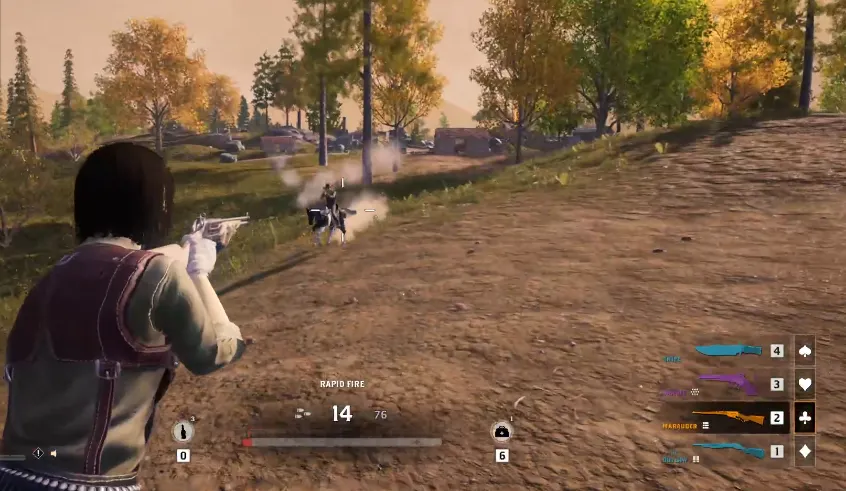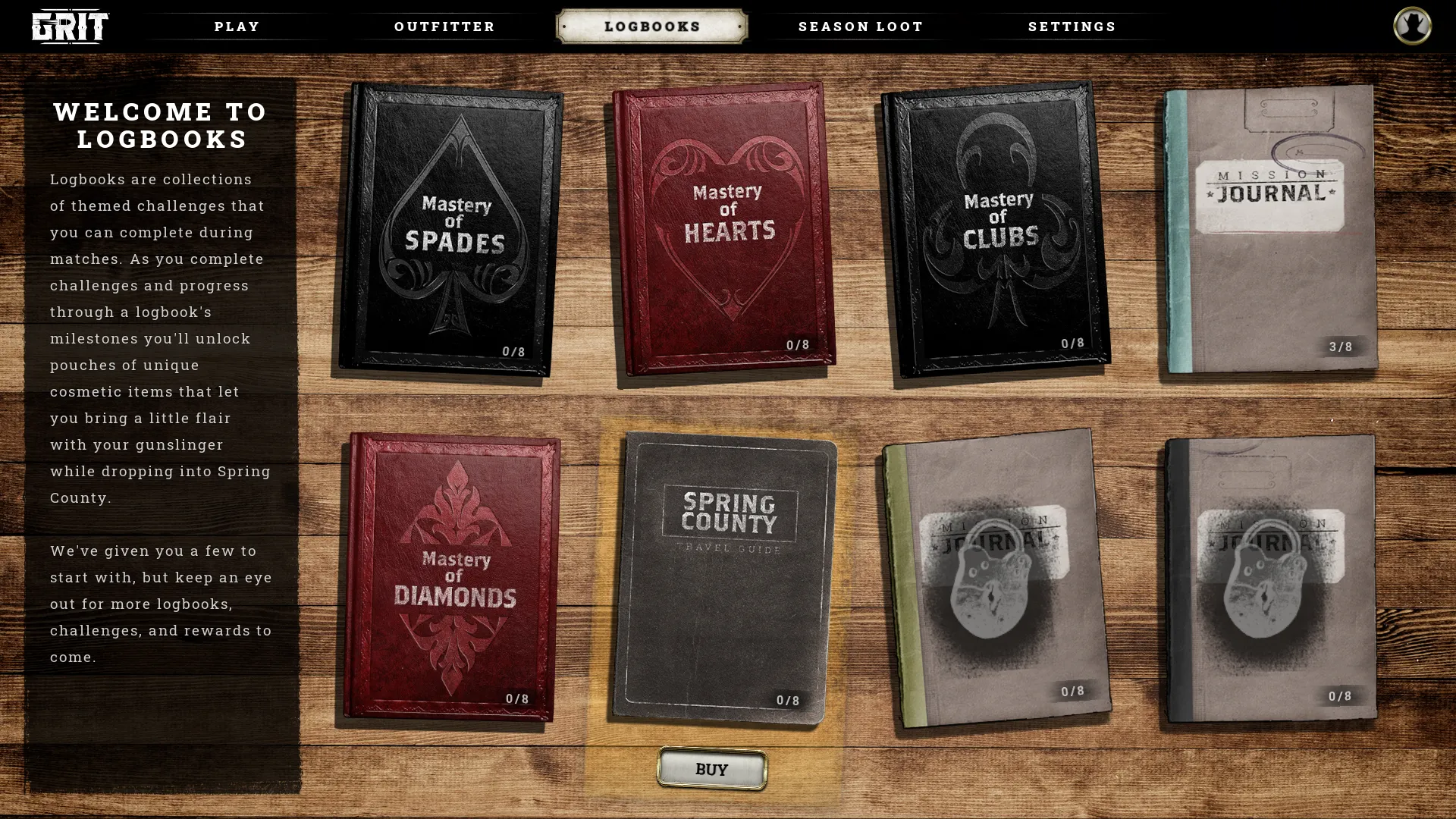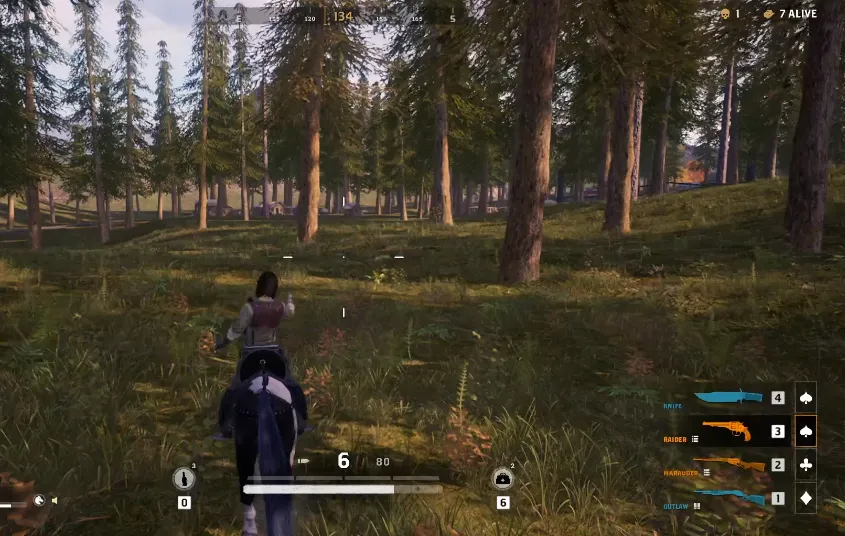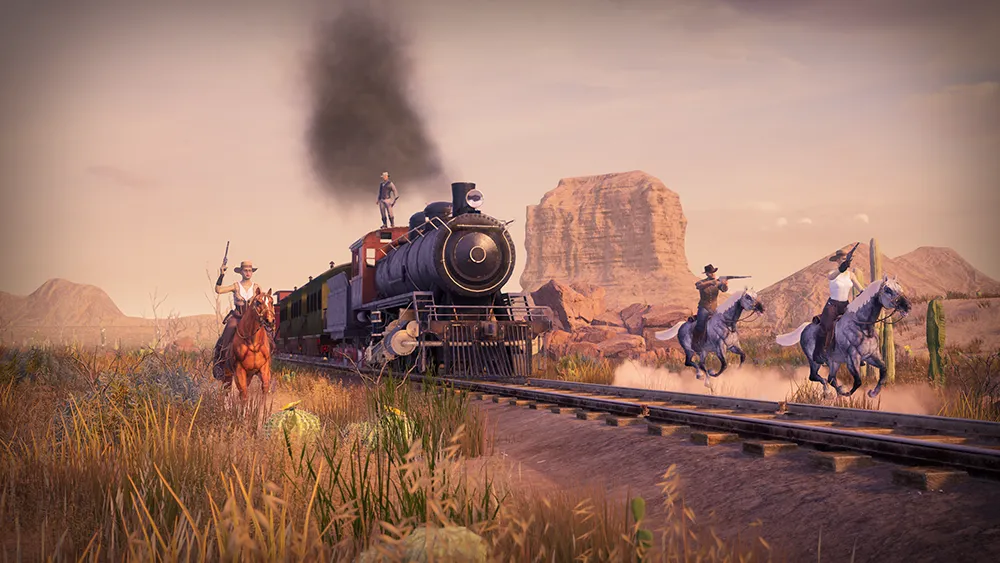Battle royale fans rejoice—a Web3 Wild West shooter is coming.
The tale of Grit’s development is somewhat long and storied, which for better or worse is common in the multi-year trenches of video game development. After previously being set to launch on PC gaming marketplace Steam for $20, Web3 publisher Gala Games picked it up with plans to expand development and make it free-to-play with optional NFTs.
Before Gala, Grit’s original announcement trailer got mixed feedback. While some gamers were excited, others complained about “crappy graphics” that, to them, more closely resembled a mobile game than an immersive PC title.
But Grit has come a long way since then—and it’s expected to launch in May on the Epic Games Store. I played an early access version of Gala’s Grit, and while my playtest version didn’t have NFTs in the mix, it did offer horseback riding, gunslinging, and heart-racing battles amidst a sonically-pleasing Old West landscape.
Gunslingin' gameplay
Grit is easy to pick up and play. It’s a battle royale player-versus-player (BR PVP) game, so the matches can be quick—roughly 15 to 20 minutes. Meanwhile, the mix of an ever-tightening ring of environmental toxins (like in PUBG, Fortnite, or Apex Legends) that draws players together plus intense gameplay keeps things feeling fast and fun.
While Red Dead Redemption fans might write Grit off as a low-res copy, it’s far from it—and there are other great western games out there (like Weird West). But Grit is for battle royale junkies who may not necessarily have the attention span for a single-player role-playing game (RPG) or who might simply prefer shorter bursts of PVP action.

While it’s easy to jump into, as the focus of the gameplay is about lootin’ n’ shootin’, the game strategy is actually fairly intricate. In Grit, there are not only different tiers of weapons like in Fortnite or PUBG (i.e. common, rare, epic, or legendary), but there are also different card “suits” attached.
For example, a gun with the Diamonds suit attached lets players track enemies for a limited time after first landing a shot, while the Hearts suit provides players with health benefits while the weapon is equipped to one of the four slots.

The Spades suit grants armor and reloading benefits, and the Clubs suit buffs (or boosts) any horse a player might ride during the match. There’s also an assortment of other items, like doctor’s bags for healing and armor for shields.
The matches I played felt fun and impactful. I had a fair amount of choice; for example, I could choose to drop in early and play aggressively, or ride around in search of the best loot and strategically aim to survive until the intense endgame. Either way, Grit feels flexible to multiple different BR playstyles. And just like any other BR, using cover and taking the high ground makes a world of difference.
The revolvers, rifles, and shotguns feel accurate and authentic, and while they are ultimately reminiscent of Fortnite weapons, the audio paired to the guns makes every shot all the more satisfying. The environmental audio and ambient noise is also very high-quality and feels like it comes from a AAA game.
One thing about Grit that’s atypical for shooters, however, is that every gun needs to be reloaded upon pickup before you shoot. That makes quick gun-grabs difficult when you’re being attacked, as the reload animation does take some time.
Despite early graphical gripes from some gamers, Grit is visually appealing. True, its character graphics could be clearer and sharper for those with higher-end machines—I played on highest settings, but still found some models a bit blurry—it’s not GPU-intensive for those without. Regardless, Grit’s maps offer a healthy mix of forests, red rock deserts, and abandoned saloon towns to keep things lively.

The fact that Grit isn’t hugely graphically demanding could be a strength, though. Not every gamer has a thousand-dollar graphics card or the latest PC build. Considering that the version I played was not the launch version, there’s also a chance things may continue to be tweaked and polished in the coming weeks and months.
NFT loot
Gala plans to launch Grit in May with its Gunslinger boxes as its genesis NFTs. Each NFT will reveal one of 10,000 generative playable characters, and they currently cost about 0.72 ETH each on Gala’s site—roughly $1,360.
While that’s certainly a hefty price tag, you’ll find a better deal buying from another holder on secondary marketplaces like OpenSea, where they currently start at 0.14 ETH—about $265 apiece.
Gala told Decrypt that much of the in-game perks tied to NFTs are still under wraps, but revealed that the NFTs will ultimately give characters unique in-game abilities.
For those looking to spend less, Grit will also offer seasonal battle passes that can be purchased with crypto or fiat currency, and which unlock new in-game cosmetics (like skins) and loot as players log hours into the game.
Gala Games also told Decrypt that it plans to launch more Grit NFTs at a later date, but will only offer the Gunslinger boxes at launch.
As an early example of a robust, AAA-style Web3 game, Grit shows a lot of promise. The gameplay—the most important part of any game—for this battle royale affair is already solid, fun, and perhaps endlessly replayable in this pre-release build. And overall, it feels very friendly for casual players, making it an ideal pick for a fun night in with friends.

